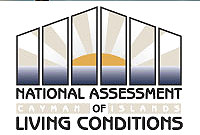Making Fiscal Prudence ‘Work’ in Antigua & Barbuda
 St John's, Antigua & Barbuda
St John's, Antigua & BarbudaThe stakes are high and the ball is rolling, this can be a message to sump up the position taken by the government of Antigua & Barbuda, vis-à-vis its fiscal policy framework which underlines a call for ‘fiscal prudence’.
“Over the past several months, the Government has been grappling with the challenge of meeting a plethora of demands to provide resources to finance a wide array of obligations. These include the repayment of debt, payment of outstanding back pay, salary and wage increases, and Cricket World Cup 2007 preparations.
While the Government is cognizant of the importance of all of these obligations, it must be understood that cash flow constraints make it impossible to meet all of these demands at the same time. In essence, the financial limitations of the Government dictate that there must be some degree of prioritization along with effective planning and management of the Government's scarce financial resources.”
So, here we are entering full fledge the challenges liaised with the search and attainment of increase in fiscal space, to tailor fiscal policy according to certain public demands, moral obligations, and the relevance of the fiscal institution to manage spending programs.
As a testing ground for the government, these factors highlight the needs to capitalize on an effective analytical process, where policy and budget formulation have to embrace the diverse scenarios attached to medium and long-term perspectives and their impacts on the fiscal framework.
In this regard, the implementation and application of a fitting institutional development scheme, could help to target the pre-requisites for a multi-year budgeting approach to gauge and extend analytical capabilities re expenditure management, sectoral costing and performance measures (whether in terms of activity or output-based budgeting).
The aims are to sort out the proper adaptation for a fiscal space approach that will take into consideration, and bridge long-term growth and national planning toward poverty reduction strategies.































